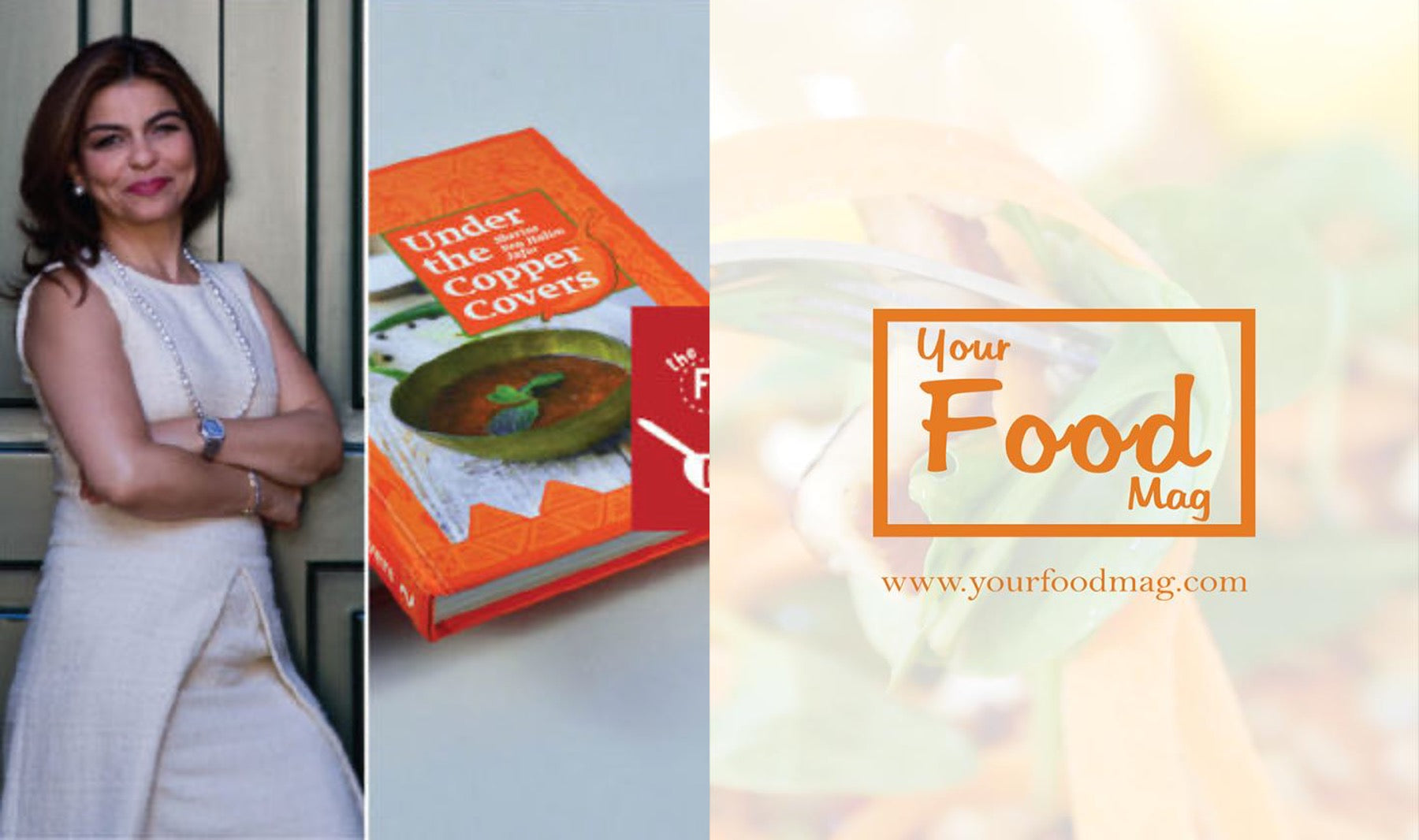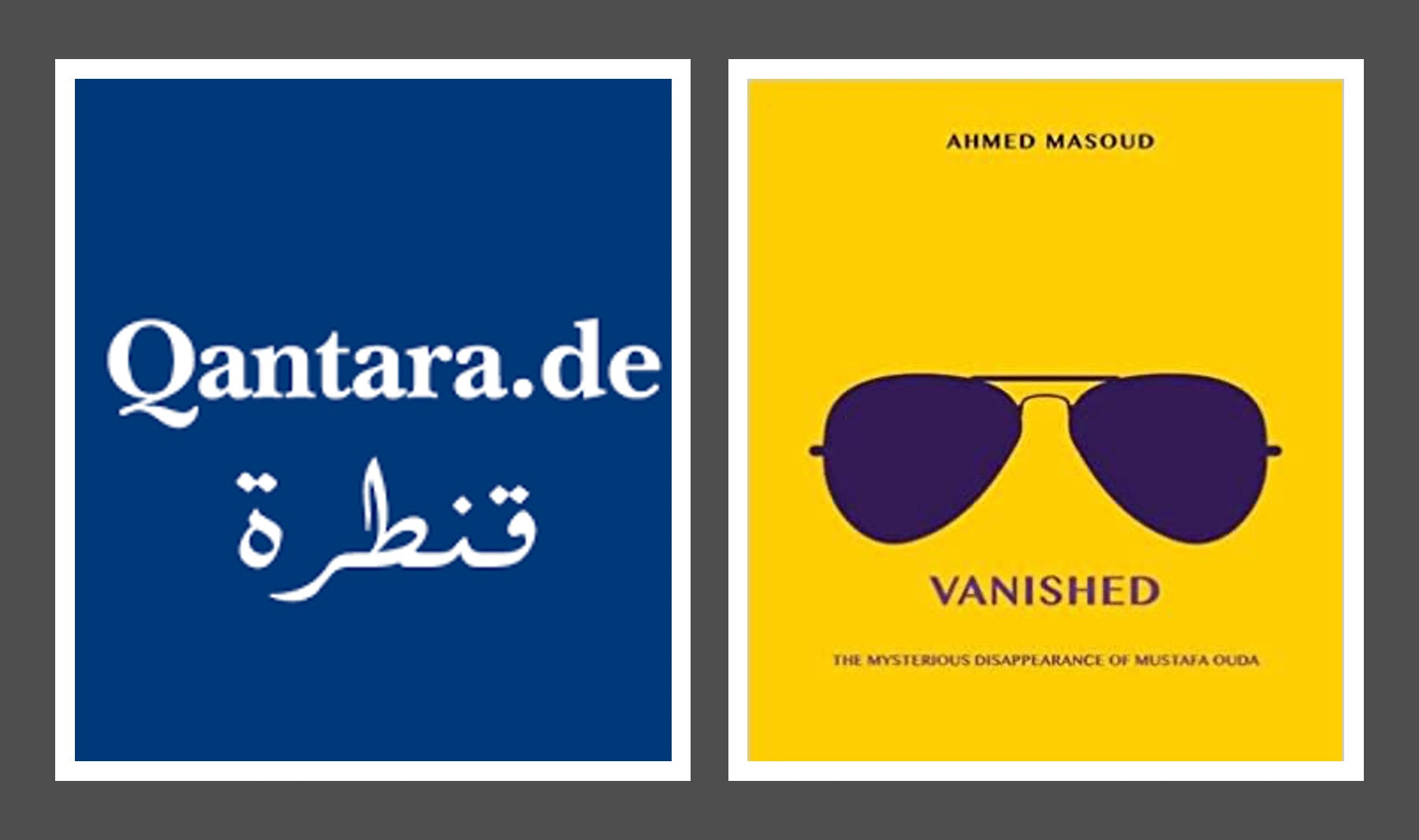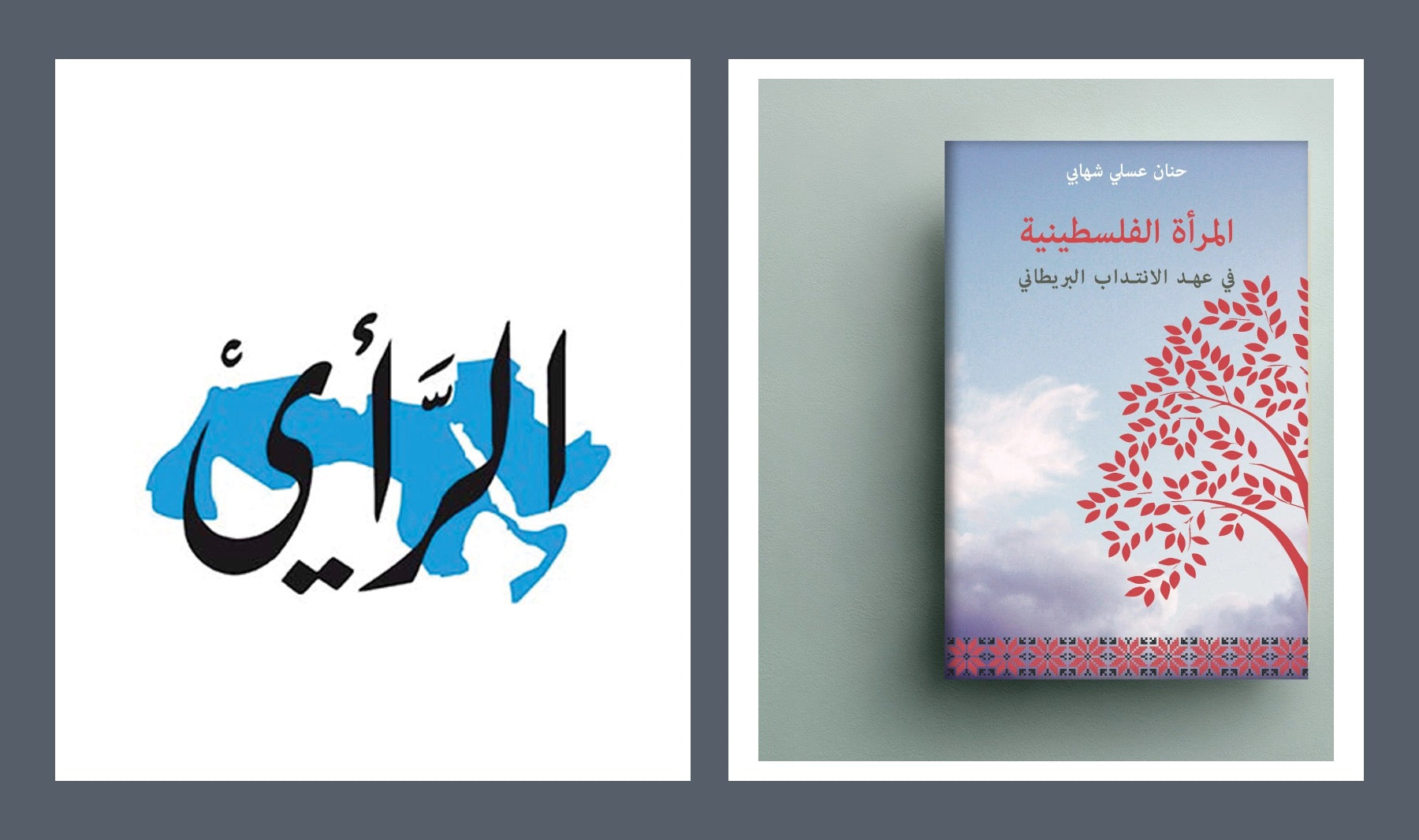
YOUR FOOD MAG
Recipes Beyond Borders
Interview with Cook Book author Sherine Ben Halim Jafar
Now happily settled in Dubai, Sherine Ben Halim Jafar, author of the cookbook, Under the Copper Covers still holds Libya, her home country close to her heart. In her kitchen, the thick aromas of spices and condiments quickly transport her to the turf where she cooked with her mother. It was her safe place. As you turn the pages of her book, you'll find each nostalgia-infused recipe waiting to tell a story. Her story. Of love, loss, longing and finally resurrecting. It is an ode to those like her who survived an exile.
To say she had a troubled childhood is an understatement. Her father, Mustafa Ben Halim is the former Prime Minister and advisor to the king of Libya. When the 1969 coup traumatised the country, Muammar Qaddafi wanted Ben Halim dead and nowhere was safe. They fled. Their life in exile was a constant chaos of death threats, bodyguards, kidnapping attempts and fear. Sherine Ben Halim Jafar, the youngest of six children was just five years old.
She constantly lived in the face of anxiety and insecurity. "I'd lost trust in everything. My family and I had sought refuge in Lebanon, and later London. Although I am proud of my heritage and am a true Libyan at heart, it was difficult for me to connect with my country in the early years." One of the greatest challenges in her years in exile was having an identity. That's why, she carried Libya with her through food. It played a pivotal role in her journey of self-discovery. "Cooking gave me a great sense of freedom and identity to my Libyan roots and Arab ethnicity. Food is very soothing and highly distracting, and I just loved it. Somehow, I found it very relaxing to be in the kitchen."
The book's journey... and hers
During the making of Under the Copper Covers Sherine went through every recipe, trying them a hundred times to make sure that they were correct. In the cathartic process, she realised there was in it an opportunity to tell her account. That's when she decided to marry the story of her life, with food. It was quite a bold decision as it wasn't easy to revisit some of those difficult moments of her life. Some of the instances are so horrifying that one wouldn't wish them even for their enemy. They will move you to tears. "The book will make people understand the situation and connect. It's not just my story, it is also the story of many others like me. There are many people living in exile. A lot of things are similar to their story and hopefully someday, they will tell it too." In a way, the book is Sherine's search for truth. "We are all made up of layers of stories, and the truth lies somewhere underneath a lot of those layers and I was looking for the truth." As for the title, Under the Copper Covers, she wrote it much before the book was actually conceptualised. Through the book, the message that she wants to convey to the women of the world is to, "Really understand that if they cook, they should cook from their heart. Food is not just a matter of putting things together. A woman can really help nurture a home and bring their family and other people together through food. Invest more time in the kitchen."
The food medley
The book transgresses the several borders that Sherine crossed with her family. The Libyan and Palestinian recipes come from her parents and the Iraqi and Lebanese are from her parents-in-law. Her maternal grandmother was Syrian. Saudi dishes such as Kubsa are her way of expressing gratitude to Saudi for granting her family Saudi citizenship. And the several Emirati dishes in the book express her thankfulness to the UAE for welcoming them and giving them the opportunity to start their lives, all over again. It is difficult to say which of the cuisines that became a part of her journey is the closest to her. "The Levant (Syrian, Lebanese and Palestinian) cuisine is more sophisticated. Iranian is more colourful, Iraqi is refined and the Libyan cuisine is probably the most Bedouin, the most tribal. They are all a part of me but I would say, the Iranian cuisine because it is so colourful and different." It was the first Middle Eastern cuisine she was exposed to, after the food at home.
From the book, the Iraqi dish Kubbat Halab is her favourite recipe but right now, Sherine is in love with fish and salads. She can survive on simple meal of bread, cheese and olives, and her favourite meal is "Breakfast, because you can eat whatever you want and need not to worry about it as you can burn it off throughout the day."
Beneath the layers
Sherine's mother is her greatest inspiration. "I felt very content, nurtured, and protected whenever I was with my mother and cooking in the kitchen. Food is nurturing, it is warmth and home. It brings people together. Put your heart in to cooking, and love what you do." Ask her if she prefers traditional or modern cooking at home? "I believe in both. There is no right or wrong, whatever can make you feel happy, just do it."
In her kitchen, the most used ingredients are garlic, onion and tomatoes, and she loves using turmeric, saffron and cinnamon. You'll find a good set of pots and pans, sharp knives and a good long wooden spoon in her kitchen. "But the most important thing is hygiene."
On her kitchen bookshelf is an Iranian cookbook, Food of Life and Ottolenghi: The Cookbook, the latter has been put together by two men: a Palestinian and an Israeli. "It is a fantastic marriage between two different cultures, and is incredible to see they use my favourite spices like turmeric and cumin." Sherine may not be very up-to-date with food blogs but she watches every single cooking and food program on BBC, whenever and wherever she can. Sometime soon, she wants to visit Japan and master the art of their cooking, especially sushi, "Because it is so delicious and fish is so healthy. Also Italy, because it is very close to Libya." On her dinner table for friends, one can expect: "Delicious, healthy and very colourful dishes. There will always be something for everyone."
Get your copy here: rimalbooks.com


